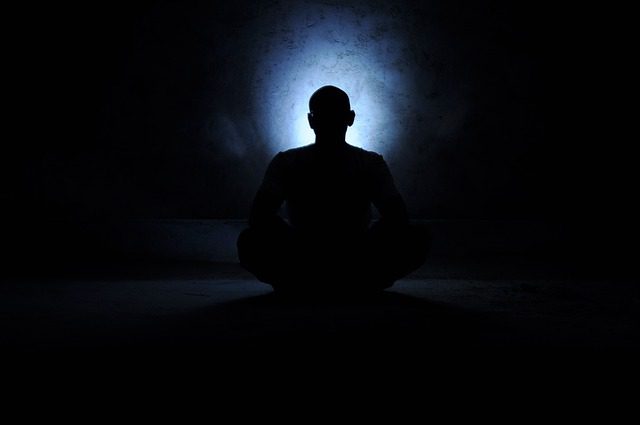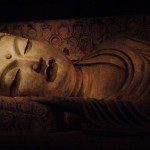If you have seen the movie Spotlight, you’ll know the lengths to which organizations can go to ignore, avoid, and eventually cover up abuse from within. Or perhaps you have heard of the blue code or blue wall of silence said to exist among police officers in the United States.
What may surprise some Western Buddhists is that many of the same beliefs and structures that led to and continue to support abuses in the Catholic Church and American police forces also exist in many Buddhist communities.
- Rigid structures of hierarchy
- Defined in-group behaviors
- Sense of superiority over outsiders
- Codes of silence – especially related to lapses in ethics amongst leadership
No one of these or combination is guaranteed to lead to violence or abuse. And violence and abuse can arise in the absence of all of them. But what too commonly occurs in communities with these ideals is abuse which, once uncovered, is seen to have gone on for years, even decades. It is simply kept in the dark.
In the darkness are whispers saying, “It was just once, let it go.”
“Maybe it was the victim’s fault.”
“We’re the good guys – we bring salvation, safety, true teachings (etc). We can’t have word getting out that will hurt us.”
“Okay, we have a couple bad apples; we can toss them out, or move them around, and everything will be fine.”
“This problem is getting really big. It could really hurt us; so we really need people to be silent now.”
If you’re hearing these things, it’s quite possible that you will need to leave your sangha. In any case, you’ll want to talk to wise friends, perhaps within and outside of your sangha, about the real possibility that things will spiral down and, sooner or later, become public. “Why didn’t they speak out when they first knew about this?” is a question often asked of those in abusive communities.
As for myself, I support those who have talked. It is important to talk early, talk often, and talk openly about what is happening. On that note, I am glad for Lion’s Roar’s discussion (and about Rigpa here) of the latest incident of sangha abuse and the recommendations they published from An Olive Branch.

And I am also grateful for and glad to reshare the words of Lama Rod Owens (via facebook) on this current situation. It is my hope that they will give courage to others to speak out, to confront abuse, to acknowledge the mix of feelings that arise, and move forward, out of silence, out of the darkness:
The relationship between student and teacher in tantric traditions is very unordinary and is outside of anything that I had ever experienced before accepting a teacher. Kagyu Thubten Choling is my home monastery and though I have several teachers Norlha Rinpoche is my primary or root teacher which means that he was the first teacher that I committed to being vulnerable with in order to facilitate my interpersonal transformative using the dharma as a vehicle. This strategy of personal vulnerability with one person whom I believed to be realized and accomplished within this particular spiritual path saved my life. I talk about this some in Radical Dharma. In anycase, this level of vulnerability is extremely delicate and if the teacher is not mature enough then boundaries are crossed and violence happens resulting in trauma. There was another teacher whom I trusted and was vulnerable with whom I experienced a non sexual boundary crossing with and I am still dealing with the trauma from it. We take a tremendous risk when we enter into these relationships. Right now I am feeling many things. Primarily I am feeling pissed, sad, anxious, ashamed, and afraid. Sexual and ethical misconduct happens in all religious traditions and especially in Buddhist communities. It is especially rampant in Tibetan Buddhist communities where young monastics in monasteries in Asia are abused by older monastics, where young reincarnate lamas are identified, confiscated, and subjected to years of emotional, physical, and sexual abuse as part of their religious training, and here in this country the sexual abuse of female identified people by male Asian and western teachers as well as other ethical misconducts around money management, racism, ableism, misogyny, and other misconducts. This is not the practice of dharma, religion, or spirituality. It is the practice of humans struggling to relate to their own suffering and how we act out of our suffering often in ways that are very unskillful and which ends up creating suffering for others.
I want to be transparent and say this is really difficult. The question that I have and which I am at this very moment struggling with is why I continue to love my community, my teachers, and my spiritual tradition knowing what I know? The first answer is that I have no other choice but to love because it is how my utter disappointment and anger is being taken care of right now. I love because despite the violence rampant in my tradition, there is a core spiritual practice that has completely transformed my life. I love because there are many good teachers and practitioners who are authentic and who are working to transform the tradition. I love because love is the only way I can take responsibility for my part in this violence. I am a cisgendered male lama in a tradition that privileges my body and where I have been blind to many of these privileges while none the less enjoying them. I have also experienced the disprivilege of being a queer black western lama where I have had no role models that look like me and where I have experienced discrimination in dharma communities both in the west and in Asia.
But the following statements are important to articulate:
- I continue to love Norlha Rinpoche. He is my root teacher. His actions against my friends and colleagues are not appropriate and are violent. He has to be held accountable. I continue to remain devoted to his dharmic realization which in instances has been clouded by ignorance and delusion.
- I still love my home monastery and still consider it home despite the culture of hierarchy that has silenced many of us in the past, including me. I no longer comply with being silenced. I am committed to being an agent of its continued process of reconciliation.
- I am in solidarity with the female survivors of Rinpoche’s actions and have supported some of the survivors I know personally during this disclosure process.
This is what I am committed to:
- ALL of my male teachers have been involved in some sexual misconduct with students. That stops with me. I am committed to understanding power dynamics and co-creating balanced and boundaried relationships with my students. Anyone who studies closely as a student with me understands my ethics contract and I am more than happy to make that document public.
- I am committed to supporting female identified teachers and elevating their teachings.
- I am committed to continuing to foster undoing patriarchy spaces for male identified practitioners to learn what our role is in challenging patriarchy.
- I am committed to supporting other male teaches in understanding their positions as teachers and how that creates potential misconduct situations.
- I am committed to being held accountable concerning my own perceived instances of misconduct.
This must be said as well: I am not a monk. I hold no vows abstaining from sex. I celebrate anyone who is establishing a relationship with sex that is done in order to develop agency over how they use their bodies. In my case I practice sex positivity and radical sex politics. What this means is that I really like sex and understand it’s power in deepening my relationship to others. I am committed to abolishing sex and body shame as a dharma teacher. However, I do not seek sexual relationships with my students and when sexual relationship is initiated in my personal life outside of dharma communities, it is done out of complete consent between myself and my partners and it is also done in a wise and intelligent way.
Finally this: I do not identify as a Tibetan Buddhist practitioner or teacher any longer. Tibetanism as a cultural influence has been a source of struggle for me. I am currently identifying as a Tantric Buddhist practitioner and lama. I am seeking to understand what Tantra is without the influence of Tibetan culture.
Feel free to share this post. Do not ask for my consent. Anything I post on social media is an act of consent.
I appreciate you reading this. I just want all beings to be free and happy. This is why I do the things I do. It’s fucking hard.
~
Support independent coverage of Buddhism by joining a community of fellow learners/practitioners at Patreon.
‘Like’ American Buddhist Perspectives on facebook.












